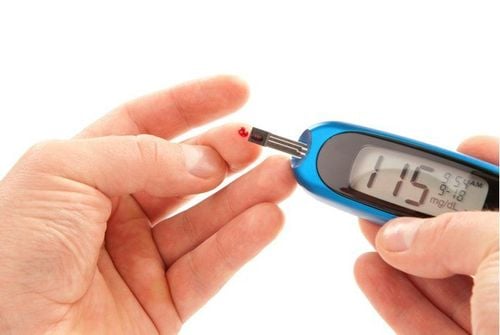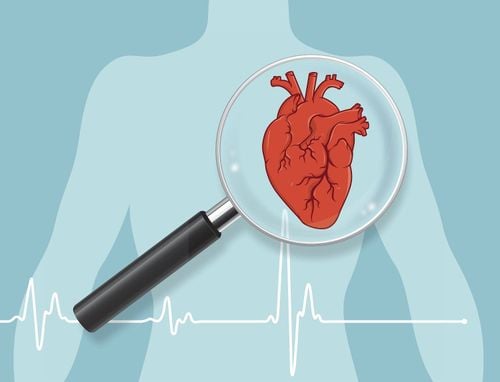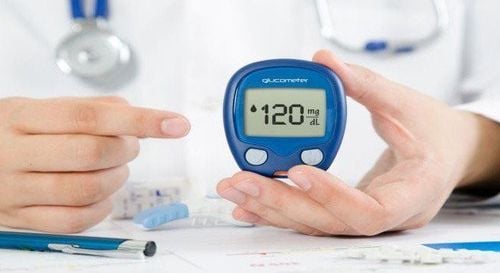This is an automatically translated article.
Sugar makes most dishes more palatable, so is it good to eat more? In fact, eating too much sugar can harm your health in many ways and to varying degrees.1. Recommendations on sugar consumption
Natural food sources such as fruits, vegetables, milk and cereals contain some natural sugar. The body gradually uses these carbs to supply cells and create stable energy. However, sugar is still added to many packaged foods and beverages. This is called added sugar, which the body does not need.
The American Heart Association recommends the amount of added sugar per day should only be:
Women: ≤ 6 teaspoons (25 grams/day); Men: ≤ 9 teaspoons (36 grams/day). However, the average American consumes more than 22 teaspoons of added sugar per day (about 88 grams). It's easy to eat more sugar than recommended. Just one 350ml can of regular soda contains up to 10 teaspoons of sugar, and without any nutritional benefits.
2. What are the harmful effects of eating a lot of sugar?
Weight gain Soft drinks are the top source of sugar for most Americans. If you drink a can of soda a day without exercising to burn the corresponding amount of calories, within 3 years you will gain about 7kg. Excessive weight gain can lead to other health problems.
Heart disease 1 in 10 Americans gets at least 25% of their daily calories from added sugars. One study found that eating that much sugar doubles your risk of dying from heart disease. Although the exact cause is unknown, it's possible that eating a lot of sugar raises blood pressure or releases more fat into the bloodstream. Both are contributors to heart attack, stroke, and other cardiovascular diseases.
Diabetes Sugary drinks are more likely to increase the incidence of type 2 diabetes. This is because when sugar stays in the blood, insulin doesn't work as well, or the body responds by making less of the hormone insulin. As a result, the function of converting the food you eat into energy will be impaired. If you are overweight, losing 4.5-7kg can help control blood sugar.

Lượng đường trong cơ thể nhiều dẫn tới đái tháo đường, mỡ máu cao
High blood pressure People often think that salt is the main cause of high blood pressure. But some studies suggest sugar may be the more worrisome "culprit". Accordingly, sugar causes insulin levels to rise too high, making blood vessels less flexible, and forcing the kidneys to hold more water and sodium. These factors lead to high blood pressure.
High cholesterol Whether you are overweight or underweight, a diet high in sugar is bad for your heart. Too much sugar raises "bad" cholesterol (LDL) and lowers "good" cholesterol (HDL), as well as raises blood fats and triglycerides and interferes with the body's protective enzymes.
Liver disease Most prepackaged foods, snacks and drinks are sweetened with fructose - a simple sugar extracted from fruit or corn. Your liver turns the fructose into fat. If you regularly load fructose into the body, small fatty tissues will accumulate in the liver. This is called non-alcoholic fatty liver disease. Changing your diet early can make fat melt away. Otherwise, over time, your liver can become damaged due to swelling and scarring.
Tooth decay Sugar is food for bacteria in the mouth. The bacteria then release acids that erode tooth enamel. Sugary drinks, dried fruit, candy, and chocolate are common causes of tooth decay. However, sour candy is one of the worst "culprits", because the amount of acid inside is as much as a battery. If you eat cake, rinse your mouth with water right after or drink some milk to neutralize the acid.
Affects sleep Eating a lot of sugar during the day can unbalance blood sugar and cause energy spikes. You will have a hard time staying awake at work or often dozing off in class. However, in the evening, eating a glass of ice cream or a cookie will provide sugar for the body and make you sleepless. Eating a lot of sugar can also shorten the length of deep sleep, making you not feel refreshed when you wake up.
Attention Deficit Hyperactivity Disorder (ADHD) It has been suggested that sugar worsens ADHD symptoms. Although not proven, many studies also conclude that sugar is not good for people with this ADHD syndrome.
Bad mood Eating a lot of sugar can be part of the reason why you often feel down. Many studies have raised the question of whether eating too much sugar is dangerous for mental health. Men who ate more than 66 grams of sugar a day - nearly double the recommended amount - were 23% more likely to develop anxiety or depression, compared with those who ate less, a latest conclusion has found. 40 grams of sugar. Too much sugar can affect your mood due to swelling or inflammation in your brain.

Trầm cảm khi khó giảm cân
Gout Many people know that gout is caused by eating too much red meat, offal and lobster. However, few people know that fructose also causes the same effect. When your body breaks down fructose, it releases purines. This chemical can cause uric acid to build up in the blood, which in turn creates hard crystals in the big toe, knee, and other joints.
Kidney stones Kidney stones form when chemicals in the urine turn into solid crystals. Sometimes the body will eliminate small kidney stones on its own without showing much pain. But in some cases stones will get stuck in the kidney or part of the urinary system and block the flow of urine. Too much fructose, from added sugars, corn syrup, or processed foods, increases the risk of kidney stones.
Aging Sugary drinks can add years to your biological age. Telomeres - repetitive sequences of DNA at the ends of chromosomes, the longer the better. Short telomeres may be associated with advanced age-related diseases. One study found that people who drank about 600ml of soda per day had shorter telomeres. This is almost like adding more than 4 years to your cells.
In short, to answer the question of what diseases to eat a lot of sugar, doctors said, when exposed to too much sugar, the brain is affected, causing weight gain, increasing the risk of diabetes, heart disease,. .. People are also often more sad and anxious when blood sugar is high. The World Health Organization recommends limiting sugar consumption to less than 5% of total daily energy, which equates to about 25g of sugar or 6 teaspoons.
Please follow the website: Vinmec.com regularly to update many other useful information.
Reference source: webmd.com













